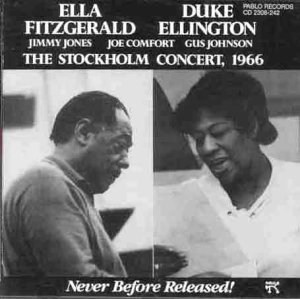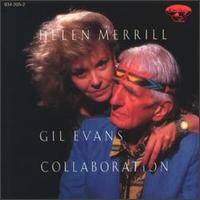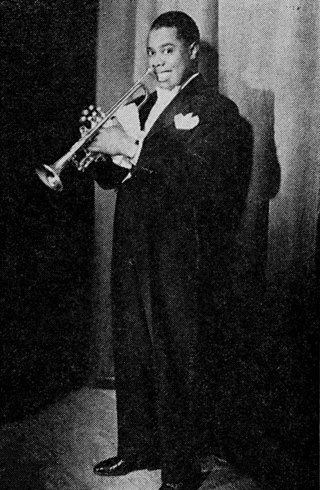Related Research Articles

Bebop or bop is a style of jazz developed in the early to mid-1940s in the United States. The style features compositions characterized by a fast tempo, complex chord progressions with rapid chord changes and numerous changes of key, instrumental virtuosity, and improvisation based on a combination of harmonic structure, the use of scales and occasional references to the melody.

Coleman Randolph Hawkins, nicknamed "Hawk" and sometimes "Bean", was an American jazz tenor saxophonist. One of the first prominent jazz musicians on his instrument, as Joachim E. Berendt explained: "there were some tenor players before him, but the instrument was not an acknowledged jazz horn". Hawkins biographer John Chilton described the prevalent styles of tenor saxophone solos prior to Hawkins as "mooing" and "rubbery belches". Hawkins denied being first and noted his contemporaries Happy Caldwell, Stump Evans, and Prince Robinson, although he was the first to tailor his method of improvisation to the saxophone rather than imitate the techniques of the clarinet. Hawkins' virtuosic, arpeggiated approach to improvisation, with his characteristic rich, emotional, and vibrato-laden tonal style, was the main influence on a generation of tenor players that included Chu Berry, Charlie Barnet, Tex Beneke, Ben Webster, Vido Musso, Herschel Evans, Buddy Tate, and Don Byas, and through them the later tenormen, Arnett Cobb, Illinois Jacquet, Flip Phillips, Ike Quebec, Al Sears, Paul Gonsalves, and Lucky Thompson. While Hawkins became known with swing music during the big band era, he had a role in the development of bebop in the 1940s.

Albert Edwin Condon was an American jazz banjoist, guitarist, and bandleader. A leading figure in Chicago jazz, he also played piano and sang. He also owned a self-named night club in New York City.

The Mills Blue Rhythm Band was an American big band active during the 1930s.

Out to Lunch! is a 1964 album by jazz multi-instrumentalist Eric Dolphy. His only recording on Blue Note as a leader, it was issued as BLP 4163 and BST 84163. Featuring Dolphy in a quintet with trumpeter Freddie Hubbard, vibraphonist Bobby Hutcherson, bassist Richard Davis and drummer Tony Williams, it was generally considered by critics as one of the finest albums issued on Blue Note, and widely viewed as one of the high points of 1960s avant-garde jazz. The album cover designed by Reid Miles features a photo of a "Will Be Back" sign displayed in a shop window showing a seven-handed clock.

The Stockholm Concert, 1966 is a 1966 live album by the American jazz singer Ella Fitzgerald, accompanied in part by the Duke Ellington Orchestra. The recording remained unreleased until 1984.
William Overton Smith was an American clarinetist and composer. He worked extensively in modern classical music, third stream and jazz, and was perhaps best known for having played with pianist Dave Brubeck intermittently from the 1940s to the early 2000s. Smith frequently recorded jazz under the name Bill Smith, but his classical compositions are credited under the name William O. Smith.
Henry Franklin "Buster" Smith, also known as Professor Smith, was an American jazz alto saxophonist and mentor to Charlie Parker. Smith was instrumental in instituting the Texas Sax Sound with Count Basie and Lester Young in the 1930s.
Jack Bland was an American jazz banjoist and guitarist.

Lady Day: The Complete Billie Holiday on Columbia 1933–1944 is a 10-CD box set compiling the complete known studio master recordings, plus alternate takes, of Billie Holiday during the time period indicated, released in 2001 on Columbia/Legacy, CXK 85470. Designed like an album of 78s, the medium in which these recordings initially appeared, the 10.5" × 12" box includes 230 tracks, a 116-page booklet with extensive photos, a song list, discography, essays by Michael Brooks, Gary Giddins, and Farah Jasmine Griffin, and an insert of appreciations for Holiday from a diversity of figures including Tony Bennett, Elvis Costello, Marianne Faithfull, B.B. King, Abbey Lincoln, Jill Scott, and Lucinda Williams. At the 44th Grammy Awards on February 27, 2002, the box set won the Grammy Award for Best Historical Album of the previous year.
Billy Banks was an American jazz singer. Banks is most prominently remembered for being a successful female impersonator on record.
Albert Morgan was an American jazz double-bassist, who played with Cab Calloway and Fats Waller, among others. He also appeared in films such as The Gene Krupa Story, and played on records supporting the likes of Jack Teagarden and T-Bone Walker.
The Jones & Collins Astoria Hot Eight were an American jazz band.

Charlie Parker on Dial: The Complete Sessions is a 1993 four-disc box set collecting jazz saxophonist and composer Charlie Parker's 1940s recordings for Dial Records. The box set, released by the English label Spotlite Records, assembled into a single package the multi-volume compilation albums the label had released by Spotlite on vinyl in the 1970s under the series title Charlie Parker on Dial. The box set has been critically well received. In 1996, a different box set collecting Parker's work with Dial was assembled by Jazz Classics and released as Complete Charlie Parker on Dial.
McKenzie and Condon's Chicagoans was an American jazz band from Chicago, led by banjo player Eddie Condon and sponsored by singer and comb player Red McKenzie. Their four recordings in December 1927 were important influences on early Chicago style jazz.

Collaboration is a 1987 studio album by Helen Merrill, arranged by Gil Evans. With the almost identical repertoire of recorded songs –though in another order– and following Evans' original scores it is a celebratory re-recording of their previous collaboration from 30 years ago for Merrill's album Dream of You, released in 1957 also on EmArcy. The one exception is the opener, "Summertime" from Porgy and Bess, that Evans recorded with Miles Davis in 1958, it replaces "You're Lucky to Me". Like Dream of YouCollaboration was recorded on three consecutive recording sessions each with a different line-up, one with woodwinds and trombone for most songs, featuring soprano saxophonist Steve Lacy on two tracks, one session with brass and another with a string section and woodwind.

The Louis Armstrong Hot Five and Hot Seven Sessions were recorded between 1925 and 1928 by Louis Armstrong with his Hot Five and Hot Seven groups. According to the National Recording Registry, "Louis Armstrong was jazz's first great soloist and is among American music's most important and influential figures. These sessions, his solos in particular, set a standard musicians still strive to equal in their beauty and innovation." These recordings were added to the National Recording Registry in 2002, the first year of the institution's existence.
"Nardis" is a composition by American jazz trumpeter Miles Davis. It was written in 1958, during Davis's modal period, to be played by Cannonball Adderley for the album Portrait of Cannonball. The piece has come to be associated with pianist Bill Evans, who performed and recorded it many times.
References
- 1 2 Mike Hazeldine (2001). "Rhythmakers". Grove Music Online . Oxford Music Online. Oxford University Press. doi:10.1093/gmo/9781561592630.article.J377700.